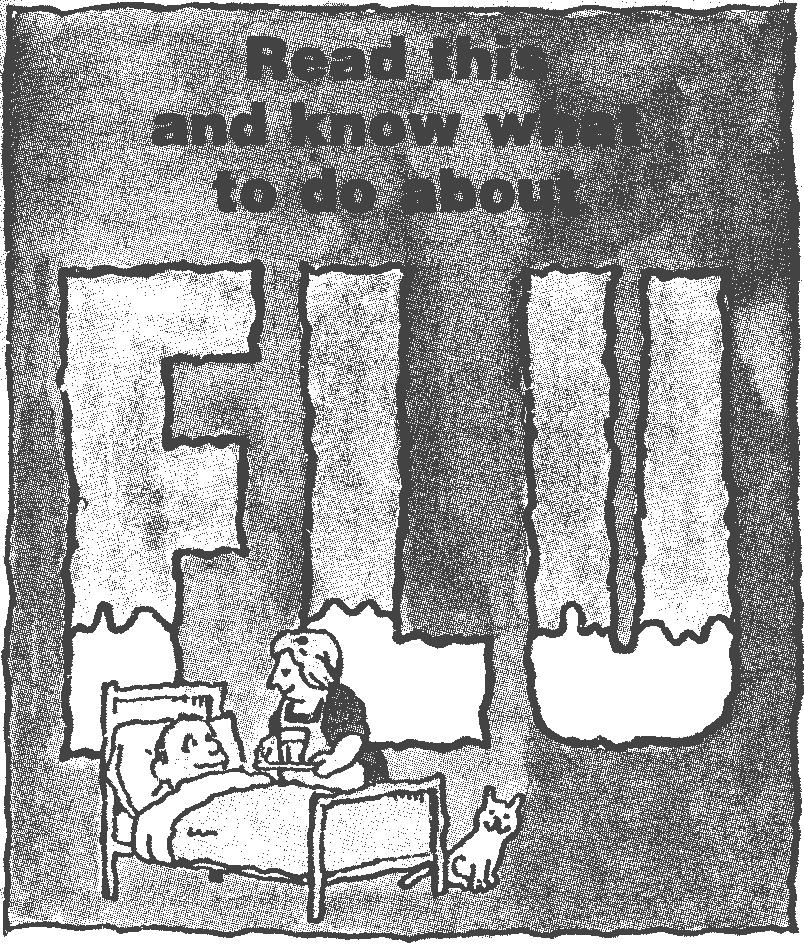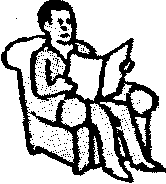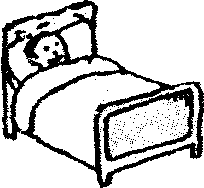
- •Health and medicine
- •Предисловие
- •Тематика коммуникативных модулей
- •Желаем Вам больших успехов!
- •Contents
- •Module 7 health and medicine
- •1 Look at the pictures and match them to the sentences which best describe these accidents and illnesses. Discuss with the partner whether these things ever happened to you.
- •2 Discuss in pairs when was the last time you were ill or had an injury and if your illness (injury) was serious.
- •3 Read the questionnaire and find out how you are keeping. Say either yes or no.
- •4 Match a word in column a with an associated word in column b.
- •5 Decide whether it’s useful or not to consult any leaflets with instructions about an illness. Look at the words below and try to guess what kind of instructions is given in the following leaflet.
- •11 Listen to the conversation between Craig Williams and Dr Casey at the Health Centre, surgery and tick (√) any words in the table above that are used in the conversation.
- •1 2 Match the words and their synonyms.
- •14 Listen to the conversation between Mrs. Mallard and her family doctor Dr. Gillespie, say what’s wrong with the patient and make up a list of all symptoms.
- •15 Role-play the conversation, with one of you playing the role of a patient visiting a doctor. Try to use the expressions given below.
- •19 Divide the names of illnesses into groups.
- •20 Choose the main symptom or symptoms from the table given below for the illnesses (1-6).
- •Illnesses:
- •21 Study the following examples of synonyms and words usually confused by Russian learners and fill in the missing words into the sentences below.
- •22 What symptoms do you have when you have these illnesses?
- •23 Match each of these illnesses with one of the four sets of symptoms here.
- •24 For questions 1-15, read the text below about the brain and think of the word which best fits each space. Use only one word in each space.
- •Time clauses
- •25 Match the parts of the sentences and put the verbs into the correct tense.
- •26 Put the verbs in brackets into present simple or future.
- •27 Fill in: until, while, before, as, when, as soon as, by the time or as long as.
- •28 Underline the correct word(s).
- •29 Fill in the gaps with before, after, since, by, ago, until, by the time.
- •30 Match the items in Column a to those in Column b to make correct sentences, as in the example.
- •31 Rewrite these sentences with time clauses using the conjunctions in brackets.
- •32 Look at the pictures and make up sentences using the time words given.
- •35 Work in pairs. Look at the following pictures illustrating health problems. Talk about them in turns for up to a minute.
- •36 Rosemary Key wants to take out a life insurance policy. The insurance company has sent her to see a doctor for a check up. This is part of the form he has to complete.
- •37 Fill in the same form giving your own details. Think of some of the illnesses you (or members of your family or friends) have had. What were the symptoms and what did the doctor advise?
- •38 Write this letter to an English-speaking friend.
4 Match a word in column a with an associated word in column b.
-
A
B
f

 eel
eelquick
defence
soluble
flu
winter
aching
serious
aspirin
back
cure
epidemics
sick
illness
system
vaccinations
5 Decide whether it’s useful or not to consult any leaflets with instructions about an illness. Look at the words below and try to guess what kind of instructions is given in the following leaflet.
●vaccinations ●antibiotics ●stay indoors ●see the doctor ●plenty of drinks ●keep away from other people ●stay in bed
6 Look at the sentences, giving tips for a person who has flu. Read the leaflet and find out if each sentence is correct or incorrect according to the text. Say which of them you agree or disagree with.
![]()
1 One symptom of flu is an aching back.
One symptom of flu is an aching back.
2 Antibiotics can help you to get better from flu.
3 If you have flu, it's essential to eat three times a day.
4 Flu is not a serious illness for anyone.
5 Flu is infectious - other people can catch it from you.
6 If you have flu badly, you should lie in a darkened room.
7 One vaccination gives several years' protection against flu.
8 The worst time of year for flu is the autumn.
9 Wash up very thoroughly if someone in your family has flu.
10 You should go and see the doctor if your flu goes on for longer than a week.
You've got your own defence system. Here's how to make it work.
You're feeling rotten - weak, shivery, with an aching head, back and limbs.
Your temperature's up over 38°C (100°F). Probably you're sweating a lot, you’ve lost your appetite and you feel sick. You've got flu.
So what do you do?
There's no quick cure. Flu - influenza - is caused by a virus. And viruses can't be killed with antibiotics. Only the body's own defence system can get rid of them. So for most of us there's no point in seeing the doctor when we've got flu. But while a bout of flu lasts, which may be anything from 24 hours to several days,
H ere's
what you should do:
ere's
what you should do:
Stay indoors, keep warm, and keep away from other people as much as possible so you don't pass on the infection.

If you feel shivery or feverish, with a temperature over 38°C (100°F) or aches or pains, try taking soluble aspirin every 4 hours during the day. And rest in bed if you can.
![]()
Have plenty of cool drinks: water, fruit drinks, milky drinks. About 2-3 litres a day.
![]()
Try to have 3 light meals. But don't force yourself to eat if you’ve lost your appetite.
Flu vaccinations Flu vaccine is usually only given to people who are especially at risk because of their health and to people who cannot miss work, like nurses, doctors, firemen or policemen. These people may be offered flu vaccination once a year, generally in the autumn before winter epidemics. But even vaccination cannot give complete protection against flu.
Remember Keep flu to yourself. Stay away from other people. Make sure handkerchiefs and also plates, knives, forks etc., are always well washed.
Look after yourself by resting in bed and having lots of cool drinks.
There's no need for the doctor unless the flu persists for more than a few days or gets suddenly worse.
But if you are elderly and in poor health, or if you suffer from severe chest condition like bronchitis or asthma, then flu can become a more serious illness.
So remember:
* When there's flu about, try to avoid crowded places and keep away from anyone who's got flu.
* If you think you've caught flu, get in touch with your doctor. Then he can at least keep an eye on you.
* In the autumn, ask your doctor if he thinks you should be vaccinated against flu.
7 Work in pairs. Imagine that a friend of yours feels unwell and may have flu. Write down questions that you would ask to find out if he or she really does have flu. What advice would you give if you think it probably is flu? Note down some expressions you can use when giving advice.
If I were you, I’d …. The best thing to do is to ….
8 Make up a list of all symptoms and names of illnesses mentioned in the text.
9 Work in pairs. Make up a leaflet “What to do about …” choose any illness? Let your imagination fly.

LISTENING
10 Complete the table with the following words. You can add your own words.
illness/injury |
part of the body/organ |
symptom |
medical treatment |
●no appetite ●throat ●plenty of fluids ●glands ●lungs ●graze ●rib● thermometer ●vomit ●kidney ●ache ●neck ● breathe ●chest ●stomach ●bruise ● hurt ● sneeze ●sting ●spine ● feverish ● inflamed ●wrist● sore ●stiff ●swollen ●knee ●shin ●legionnaire's disease ●rash ●sore throat ●stitches
